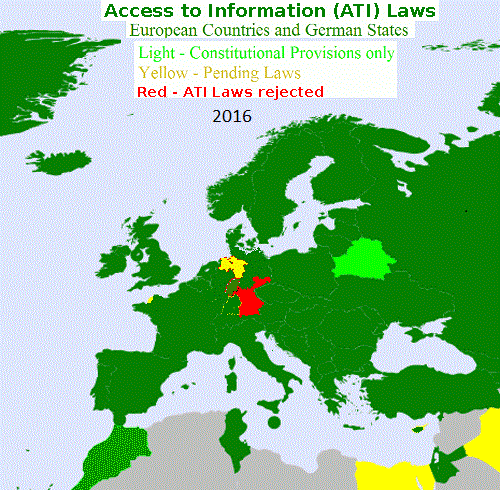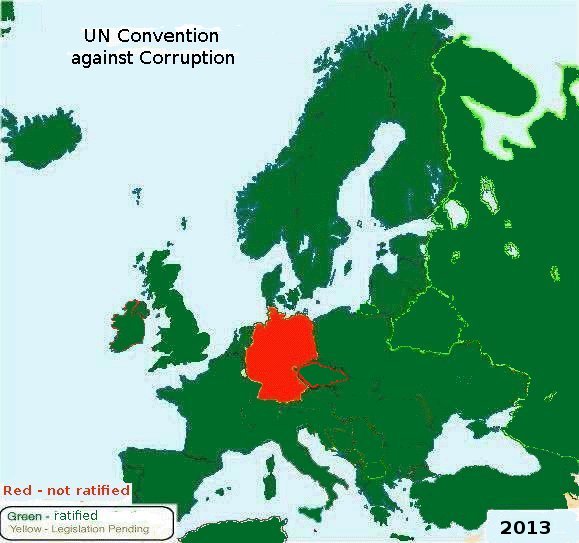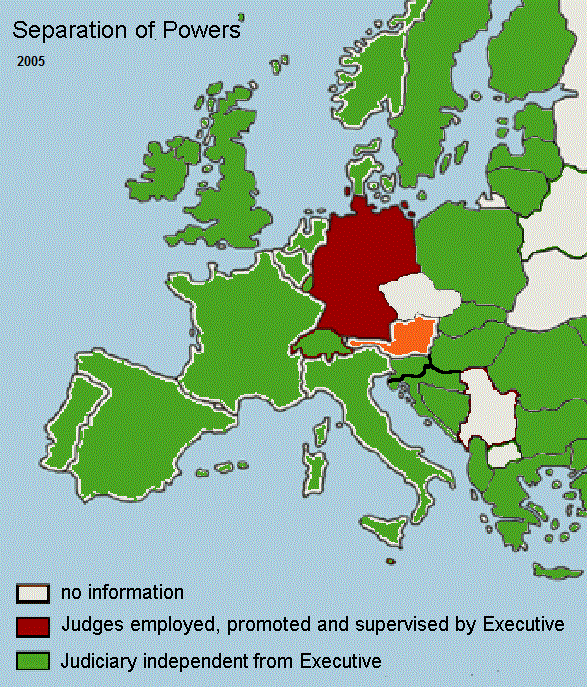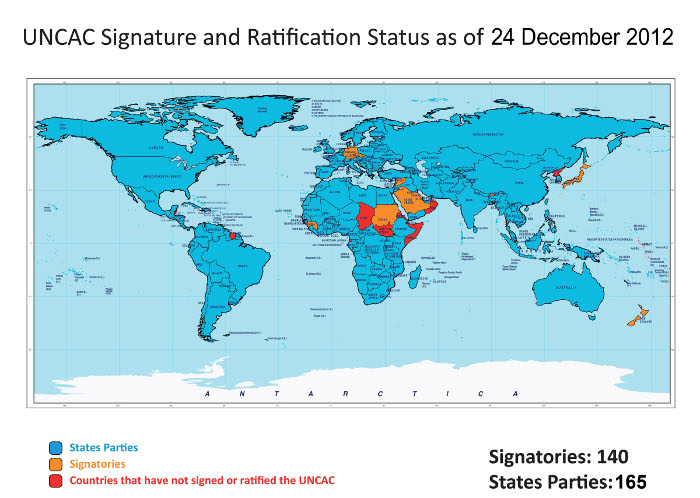Knowledge will forever govern
ignorance, and a people who mean to be their own governors,
must arm themselves with the power knowledge gives.
A popular
government without popular
information or the means of acquiring it, is but a prologue to a farce
or a tragedy or perhaps both.
-- James
Madison --
 auf Deutsch über gleiches Thema:
http://wkeim.bplaced.net/if-ngo.htm
auf Deutsch über gleiches Thema:
http://wkeim.bplaced.net/if-ngo.htm
Walter Keim, Email: walter.keim@gmail.com
Torshaugv. 2 C
N-7020 Trondheim, 17. May 2012
To the Private Office of the President of the Assembly
Parliamentary Assembly
Council of Europe
Avenue de l'Europe
F-67075 Strasbourg Cedex
Copy: Secretary General CoE Thorbjørn Jagland, Commissioner of Human
Rights CoE, EU Commission, President of Federal Republic of Germany,
President of Bundestag Lammert, Chancellor Merkel, GRECO
What can be done to improve the human right of access to public
documents, transparency and fight against corruption in Germany?
Freedom of Information, Transparency and
Anti-corruption Treaties in Germany
Dear Mr. Sich,
thank you very much for your information dated 13 February 2006 that the
petition "Access to information" in Germany [2] has been transmitted to
the competent Committee of the Parliamentary Assembly [1].
However I can not see to have received a decision on admission.
The
human right of access to public documents (International
Covenant on Civil and Political Rights, European
Covention of Human Rights) is recognized as precondition for
democracy and essential in the fight against corruption.
10 years ago development showed (Appendix G: Will
Germany abandon Freedom of Information? Appendix H: Banana
Republic Germany), that Germany was least developed in Europe.
Now many countries outside Europe are more advanced then Germany looking at
freedom of information, transparency and fight of corruption.
- 84 states with approx. 5.5 billion inhabitants give better access to
information then the federal Freedom of Information Law in Germany (http://www.rti-rating.org/country-data/).
- more than 115 states (http://right2info.org/laws)
with more then 5.9 billion inhabitants adopted FOI laws or provisions in
constitutions. 5 German states with half of the population lack FOI
laws.
- The UN Convention against Corruption is ratified by 158 states with
more then 6,5 billion inhabitants, but not by Germany (Appendix
A).
- Germany did not ratify the Criminal Law Convention on Corruption and
does not follow Recommendation Rec(2003)4 on common rules against
corruption in the funding of political parties and electoral campaigns
of the Council of Europe as GRECO (Group of States against Corruption)
suggested 4. December 2009 (Appendix
B, Appendix
C).
- Germany is the only state in Europe which has not ratified any of
these to conventions against corruption (Appendix
D).
GRECO
concludes 29. December 2011 in report Greco RC-III
(2011) 9E that Germany has implemented or satisfactorily dealt with only
four of the twenty recommendations contained in the Third Round Evaluation
Report (Appendix 3). Germany has to report on progress 30. June 2012
at the latest. But nothing happened up to now.
51 states
participate in the Open Government Partnership for transparent accountable
governments. This OGP
initiative wants governments to commit to openness, participation
for citizens, fight against corruption and use of new technologies. But
Germany does not participate, even it would be very necessary.
Germany has to improve the federal FOI law, adopt FOI laws in 5 federal states
(Bundesländer), ratify CoE and UN conventions against corruption and improve
transparency of sideline jobs for members of parliaments and funding of
political parties to catch up with other states in Baltic Sea, Europe,
America, OSCE, OECD and WTO (see weakness no. 2, 3, 4, 8, 34, 35 and 52 of
National Integrity Report by Transparency
Germany).
The documentation that access to public documents is a human right has
become stronger:
UN,
OSCE and AOS Special Mandates for Protecting Freedom of Expression confirmed in Joint Declaration of 6. December 2004, that access to information is a human right: (Appendix
4):
"The right to access information held by public authorities is a
fundamental human right which should be given effect at the national
level through comprehensive legislation (for example Freedom of
Information Acts) based on the principle
of maximum disclosure, establishing a presumption that all
information is accessible subject only to a narrow system of
exceptions."
The federal FOI law violates the principle
of maximum disclosure. 5 federal states violate the human
right of access to public documents. i. e. no FOI law is adopted.
The "General Comment No. 34 on Article 19 of the ICCPR" confirms
this (Appendix
J):
"18.
Article 19, paragraph 2 embraces a general right of access to
information held by public bodies. Such information includes all records
held by a public body, regardless of the form in which the information
is stored, its source and the date of production."
"19. (...) States parties should also enact the
necessary procedures, whereby one may gain access to information, such
as by means of freedom of information legislation."
The UN Human Rights Committee decided that the International Covenant on
Civil and Political Rights (ICCPR) Article 19 (3)
recognizes the right of individuals and the media to receive state-held
information without requiring a demonstration of direct interest
(Appendix L).
The European Court of Human Rights recognizes the human right of access
to public documents (Appendix
M).
The CoE Human Rights Commissioner suggested to educate administration and
judges in international law and human rights (Appendix
E). The refusal to give access to the reason of Bavaria not to follow
these suggestions (Appendix
F), shows that this suggestion is important.
"Parlamentwatch" offers a possibility to ask questions to members of
parliament. Unfortunately only a minority of the political parties in the
federal parliament and federal states were willing to strengthen transparency
and anti-corruption (Appendix
O).
Germany is the only country ignoring the demand of the first Baltic Sea NGO
Forum to adopt the human right of access to public documents (Appendix
N).
I ask the competent Committee of the Parliamentary Assembly to help Germany
to catch up with the other European states.
Sincerely,
Walter Keim
Copy: Transparency
International, European
Commissioner for home affairs (EU
COM(2011) 308: Fighting
Corruption in the EU), OSCE,
OECD,
The European Union Agency for Fundamental Rights (FRA), German
Institute for Human Rights, Menschenrechtszentrum, BMJ, Lehrstuhl
für Menschenrechtsbildung, Menschenrechtsbeauftragter der
Bundesregierung, Ausschuss
für
Menschenrechte und Humanitäre Hilfe,
Appendices:
- 13. February 2006: This petition has been transmitted
to the competent Committee of the Parliamentary Assembly:
. http://wkeim.bplaced.net/files/pace-060213.html
- Petition: Access to Information and other Violations of Human Rights
in Germany http://wkeim.bplaced.net/files/pace-complaint.htm
- 29. December 2011 in report Greco RC-III (2011) 9E: http://www.coe.int/t/dghl/monitoring/greco/evaluations/round3/GrecoRC3%282011%299_Germany_EN.pdf
Published on Internet:
- http://en.wikipedia.org/wiki/UNCAC:
159 states have ratified United Nations Convention against Corruption
(UNCAC). Germany has not ratified.
- GRECO Third Evaluation Round (launched in 2007): http://www.coe.int/t/dghl/monitoring/greco/evaluations/round3/ReportsRound3_en.asp
- 4. December 2009, GRECO Evaluation Report on Germany on Incriminations
(ETS 173 and 191, GPC 2): http://www.coe.int/t/dghl/monitoring/greco/evaluations/round3/GrecoEval3(2009)3_Germany_One_DE.pdf
- Lobbypedia - GRECO: http://www.lobbypedia.de/index.php/GRECO
- Bericht
des Menschenrechtskommissars Thomas Hammarberg über seinen Besuch in
Deutschland 9. – 11. und 15. – 20. Oktober 2006: http://wkeim.bplaced.net/files/Bericht-des-Menschenrechtskommissars.html, Judges
and administration should be educated in human rights
- 13. December 2011: Application to access documents telling why
suggestions of Commissioner of Human Rights are refused: http://wkeim.bplaced.net/files/ifg-einsicht.htm
- heise.de: Verabschiedet
sich
Deutschland vom Informationsfreiheitsgesetz? http://www.heise.de/tp/deutsch/special/frei/12314/1.html
- heise.de: Bananenrepublik
Deutschland:
http://www.heise.de/tp/r4/artikel/12/12689/1.html
- 21. December 2004: Joint Declaration by the Three Special Mandates for
Protecting Freedom of Expression UN, OSCE and OAS: http://merlin.obs.coe.int/iris/2005/2/article1
- "General Comment No. 34 on Article 19 of the ICCPR": http://www2.ohchr.org/english/bodies/hrc/comments.htm
- January 2012, Transparency Germany: - 84 weaknesses in the fight
against corruption (conventions against Corruption to be ratified,
improve FOI laws): http://www.gp-f.com/en/ak.php#231
- UN Human Rights Committee decisions: http://right2info.org/cases#section-6
- The European Court of Human Rights cases Article 10 of ECHR:
http://right2info.org/cases#section-2
- 24. April 2012: X. Baltic Sea
NGO Forum. The role of international
lawmakers and their respective influence on national legislation on
information access (pdf)
- 15. February 2012: Will political parties strengthen transparency and
anti-corruption? http://wkeim.bplaced.net/files/120215questions.html
Result:
Development:
Visitor No.  since 4. January 2012
since 4. January 2012
[Freedom of
Information] [Petitions] [Human rights] [Constitutional complaint] [Homepage]
This publication is a "hearing": Please send comments to: walter.keim@gmail.com
Warning: I do not accept any
liability that the information on these pages is correct, accurate or up
to date!
You may link this page.
Dark green: Access to Information Law. Light green: Access
to Information in constitution only. Yellow: Access to Information Law
pending



Separation of powers in Europe:



Defamation in Europe:

 auf Deutsch über gleiches Thema:
http://wkeim.bplaced.net/if-ngo.htm
auf Deutsch über gleiches Thema:
http://wkeim.bplaced.net/if-ngo.htm auf Deutsch über gleiches Thema:
http://wkeim.bplaced.net/if-ngo.htm
auf Deutsch über gleiches Thema:
http://wkeim.bplaced.net/if-ngo.htm
since 4. January 2012